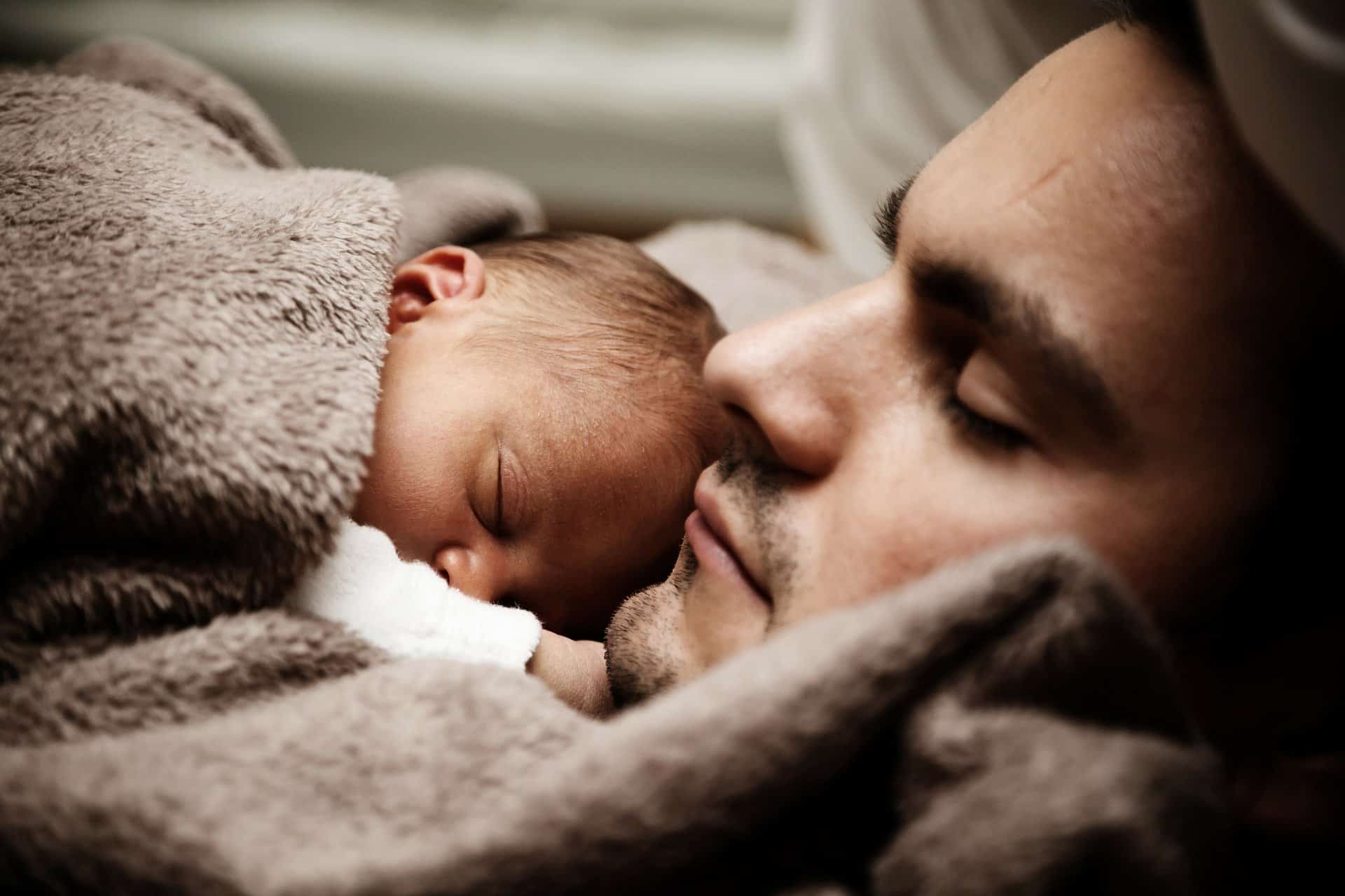Trusting a Child’s Intuition

As a parent, we want the very best for our little ones and hope that they grow up to be wonderful, successful individuals. Most of what we do is to facilitate that development. We are constantly wondering and doubting ourselves. That doubt increases if our parenting doesn’t fall in line with what parents around us are doing. We want to know that we are doing the right thing. But the irony of life is that we don’t get grades in life to let us know how we are doing.
Some think if we can control the situation, our child, and our surroundings; it will all work out. However, sometimes assuming control isn’t the best response. Sometimes, we have to step back and give our children room to grow according to their needs and trust that they know what the right steps are and when. There is a term for that… trusting a child’s intuition.
What is intuition?
Have you ever had a “gut-feeling” about something? Either a situation that just didn’t feel right though you couldn’t put your finger on the why. Or a feeling to make a change in your life that just didn’t make sense or didn’t jive with your original plans. Even a feeling to check on a friend or family member. It’s just a hunch.
Believe it or not, our children are quite in tune with their “gut-feeling” or intuition. However, they don’t have the luxury most times to just follow their gut because they have to answer to us, their parents. Now I am not talking about running in the street or jumping into a pool throwing caution to the wind, a little common sense is necessary here.
Let’s look at some scenarios
Give this some thought… would you be upset if someone made you a plate of food then tried to force you to eat EVERY SINGLE BITE? Even though you knew you were absolutely full!
Or how would you feel if someone yelled at you because you wouldn’t go to the bathroom when they wanted you to, then rolled their eyes when you told them a little later,
“I need to go to the bathroom.”
And they say, “I JUST ASKED YOU!”
Or you wake up from a nightmare, scared out of your mind and you are all alone… you just need a hug and some reassurance that everything is okay. You go to the people that you love the most in the world, the ones you rely on. And they just shuffle you back into bed, tell you…
“you’re fine, go back to bed”
Leaving you in the dark alone…

Each scenario leaves a bad taste in the mouth for different reasons but yet it’s what most children have to go through every day. We subject them to being controlled, to be obedient no matter what. Then we are surprised when they act out and then we punish them for having emotions and just being done because they aren’t being heard.
Kids want to explore, discover the world around them and they need our support. They want what we want, to have some say about their bodies and their everyday lives… that’s all.
How we teach kids not to trust their gut
A sad truth is that we force kids to unlearn to rely on what they feel to be right for them. Now, most parents don’t set out to do this, it is an unfortunate consequence of us thinking “we know better” and the theory that children come into this world as blank slates that we need to write upon.
Here are some ways we break down the necessary link between our child and their intuition:
Forcing them to have physical interactions with others against their will
“Go hug Grandma, Grandpa, Uncle, Aunt, your cousin.”
“Give your Aunt/Uncle a kiss.”
You might not think anything of it or you have a desire to please the adults in the room but the unmistakable truth is that while you are pleasing the adults in the room, the consequence… you are teaching your child that it doesn’t matter if they feel uncomfortable or not, they must endure it to please others. A very chilling problem that leaves our kids vulnerable to those who have shady motives.
Listen and respect adults/elders
Not all adults deserve our respect. There are some bad apples out there. A wise woman shared what she told her kids; sketchy adults don’t ask for help from kids.
It is important to teach that we should always be kind however allow our children to trust their instincts when it comes to others. If someone is giving them the “heebee jeebees” then we should respect that, read the situation ourselves and find a way out of the situation.
This does several things; First, this strengthens your bond with your child, they feel heard without being shamed or disregarded. They feel that you have their back. Secondly, you allowed them to trust themselves and their instincts. You trusted them and their intuition. Finally, because you set a positive tone in your relationship with them they are watching how you handle the situation. Giving you a teaching moment, modeling how to get out of a situation quickly and without a fuss. Or how to handle it if someone does cause a fuss.
You have their attention, their trust, and respect. They will want to emulate you because you were there for them.

Minimizing your child’s fear
Your child expresses a fear of a situation, activity, thing, or person. How often do we just brush them off and say, “Oh, you’re fine.”
In an instant, due to us either being busy or distracted, we just invalidated our child’s apprehension instead of listening, and acknowledging their fear. Fear doesn’t go away with age but our coping with that fear is what will determine our reaction to it. Coping with fear in a healthy way requires some guidance from parents so the child can process his/her fear effectively and know whether it is time to get out of dodge of a sticky situation or to take a deep breath and push through like during a performance.
Again our approach is dependent on our child’s temperament and situation. There is a time they need to know how to get out of a situation that feels wrong and how to keep calm while doing so. And then there is a time when they need to work through their fear to grow as a person or to become better such as performing; be it singing, playing an instrument, acting, giving a presentation, etc.
I won’t pretend that this is an easy task. It requires us to be there in the moment with our children and get on their level. Assess the situation and see what our child needs. And it is exhausting work!!
It is important to keep in mind that we may not be perfect and that’s okay. Our kids don’t need perfection, they need us to be there for them, with them, and know that we have their backs when they are facing tough situations.
To be polite
This might strike a debate of semantics but there is a difference between being polite and being kind. There are times when the consequence of the lesson of being polite can inadvertently teach kids that they should be pushovers, be grateful and smile while it happens. Being polite leaves little room to teach how to have boundaries and to be confident in defending those boundaries while opening the doors to resentment. This is due to the fact that politeness has become associated with “don’t make waves” or “don’t rock the boat.”
In our family, we teach our boys to be kind; say excuse me, please, thank you, etc. We do this by modeling that behavior and we don’t require our boys to do so every time because we don’t do it every single time.
And no one expects us to. We want their kindness to be genuine and spontaneous, not forced. We also allow them to have control over what happens when it comes to their bodies.
If they don’t want to give a family member a hug that’s okay. We have them at least wave and say hi/bye. However, we have had a few incidents where family members have gotten in their space and ignored the signs that the boys did NOT want them there. Then the boys hit the family member. This is when we step in, however, we have never gotten on to our child for doing this.
This might shock some, however, the lesson I want my boys to learn is that no one is allowed to invade their space if the boys don’t want them there. That includes me and their dad, we don’t have any more right than anyone else to invade their space. While also emphasizing that the boys are not allowed to invade someone’s space if that person does not want them there. Demanding respect for their boundaries while giving respect to others’ boundaries.

The exceptions to the body boundary rule only include if they are putting themselves in danger such as trying to run into the road or having a “tantrum” and we need to relocate them to a better or safer place for them to work out what they are feeling.
Another exception is if they try to hurt others, we stop them before they do so if we can. If they are losing their cool then we remove them out of that space. Not to punish them because oftentimes when kids lash out they are feeling out of control due to emotions, overstimulation, being hungry, or tired. So the solution is to remove them from the situation and tend to that need even if that means leaving a playdate early.
Packing their schedule
We do our children a disservice when we keep them hopping from one activity to the next. As any one of us can attest when we are meeting ourselves coming and going there isn’t time to feel a situation out or listen to our body if it’s telling us to take a breather or even think.
Kids that are shuffled from one activity to the next are far less likely to learn how to relax, to enjoy a moment, or to “enjoy the sunset.” They are likely to grow up into adults that push themselves too hard, become antsy if they aren’t doing something. They aren’t in tune with themselves and their needs because they have learned to ignore their needs and push through. They become somewhat disconnected from themselves.
Let kids just be kids. There is no need to compete with other children or parents on who is better; who can run faster, better at sports, read before everyone else their age, etc. The list can be miles long. Let kids be bored, that’s when creativity can come out and play.
Letting children have plenty of time to themselves to do what they feel like doing, to enjoy life, sleep, play cops and robbers, draw, read or at least look at pictures. Or even do…nothing… letting the brain wander.
Kids can stay in tune with themselves if we stay out of the way. Give them a couple of hours to just be themselves, to explore whatever thought has taken ahold of them. It allows them to release bottled up energy. Nervousness, anxiety can be abated by letting kids do what they feel is best; even if that means letting them run wild in the yard, running, or roughhousing. It’s almost like therapy for them and then they can take on anything; handle stress, changes in their schedule if they are given the time needed to reconnect and let go.
Trusting adults over our child
We make a vital error when we default to trusting an adult’s word over our child’s version of the story.
Do children lie?
Absolutely!
Do adults lie?
Absolutely!!!!!!
I wish there was a blanket rule or something that would work for every situation that we may face. But the truth is, this is where we might have to take a leap of faith and trust our own gut. We can’t control other adults but we do have some influence over whether our child lies to us and that relies on our relationship with them.
How to foster your child’s ability to trust their own intuition or gut

Our relationship with our child is so vital yet we often take it for granted. If we want our child to be honest then we MUST create a space where it is safe to share without fear of being punished, ridiculed, or shamed whether or not it was their fault.
Don’t be a cynic and question their every move, have faith in them and their abilities. Believe in them. When they mess up, guide them on how to fix it, help them navigate the natural consequences that follow their decision.
Allow them to talk your ear off when they are young because that will lead to teenagers that will tell you the big things. Don’t expect them to have the abilities of adults like self-control, coping skills, perfect communication skills. They are still learning. It’s our responsibility to create an environment that fosters the learning of good habits, healthy coping skills, and what their boundaries are.
NEWS FLASH
They are kids, you are the adult. As adults, we all know full well that there are many adults that don’t have their life together so stop having impossible expectations for your kids. Remind yourself where your child is at developmentally, not age. And check yourself, your responses, and reactions.
Model the behavior
Most adults hate this… We want kids to do what we say and not do what we do. That’s not how this works folks. We are kidding ourselves. We must discard the notion that as parents “we know best”
If you want your child to be kind, then be kind. You want a child that is considerate then be considerate. Want a child to have healthy boundaries? Guess what? You have to model how to stand firm for your boundaries. While learning to respect the boundaries our child has set for themselves, not bristling up because they are becoming independent and say no.
And when we mess up as parents, and we will; we yell, we lose control, we have a bad day… We need to muster the courage and humility to go to our child and apologize for being a jerk.
That lets them know they are not responsible for our actions. We are. Explain how you are going to try to do better.
And right there, ladies and gentlemen, we would have just taught our children that they are responsible for their actions, not anyone else’s. We have opened the door for them to learn not to blame others and take responsibility when they make a mistake. We have started to instill the notion to always strive to be better today than yesterday and it’s okay to make mistakes. Learn from them, fix them if you can, and move on.
Wrap up
When navigating how to raise and guide your child to adulthood, ignore everyone else, trust your own intuition. Society isn’t charged with raising your child. You are and no one is more wonderfully made for the task of raising your child than you. Trust yourself, trust your child, focus on building your relationship in a positive way. It’s going to be trial and error, you will make mistakes, so will your child.
Never let a mistake, a choice, situation, or hurt weigh more than your relationship and your love for your child.
References
5 Ways We Teach Kids to NOT Trust Their Gut Instinct! (2016, November 23). Retrieved January 09, 2021, from https://www.anxioustoddlers.com/gut-instinct/#.X45XzNBKhPY
Bonvoisin, A. (2019, May 02). One Skill You Must Teach Your Kids. Retrieved January 09, 2021, from https://thriveglobal.com/stories/one-skill-you-must-teach-your-kids/
Bryan. (2019, January 15). 15 Ways to Support Children to Play with their Intuition ~ Engaging the Heart, Intelligence & Innocence of Children. Retrieved January 09, 2021, from https://www.vincegowmon.com/15-ways-to-support-children-to-play-with-their-intuition/
Children’s Intuition: A Special Key to Success in Life: Natural Awakenings Magazine. (n.d.). Retrieved January 09, 2021, from https://www.naturalawakenings.com/2009/09/01/272830/children-s-intuition-a-special-key-to-success-in-life#:~:text=A%20child’s%20intuition%2C%20or%20sixth,more%20quickly%20to%20a%20solution.
Delgado, J. (2019, May 09). How we kill children’s intuition. Retrieved January 09, 2021, from https://psychology-spot.com/children-intuition/
Happymamawithamy. (2017, May 29). How to nurture a child’s intuition -. Retrieved January 09, 2021, from https://www.wellbeing.com.au/kinship/parenting/how-to-nurture-a-childs-intuition.html
How to Nurture Your Child’s Intuition: Their Inner Compass. (2018, April 29). Retrieved January 09, 2021, from https://themulberryjournal.com/writing-collective/how-to-nurture-intuition
More4kids. (2009, June 07). Why Supporting Children’s Intuition Is Important to Their Success as Adults. Retrieved January 09, 2021, from https://www.more4kids.info/699/childrens-intuition/
Schwarz, N. (2017, June 06). Do you trust your parenting gut-feeling? Retrieved January 09, 2021, from https://imperfectfamilies.com/do-you-trust-your-parenting-gut-feeling/
Simpson, L. (2017, November 01). How To Teach Your Kids To Listen To Their All-Important Gut. Retrieved January 09, 2021, from https://www.huffingtonpost.ca/linda-simpson/how-to-teach-your-kids-to-listen-to-their-all-important-gut_a_23259799/
Sutton, J., Ph.D. (2020, November 16). What Is Intuition and Why Is It Important? 5 Examples. Retrieved from https://positivepsychology.com/intuition/
Thornhill January 17, N. (2018, January 17). The importance of teaching kids to trust their gut. Retrieved January 09, 2021, from https://www.todaysparent.com/family/parenting/the-importance-of-teaching-kids-to-trust-their-gut/



